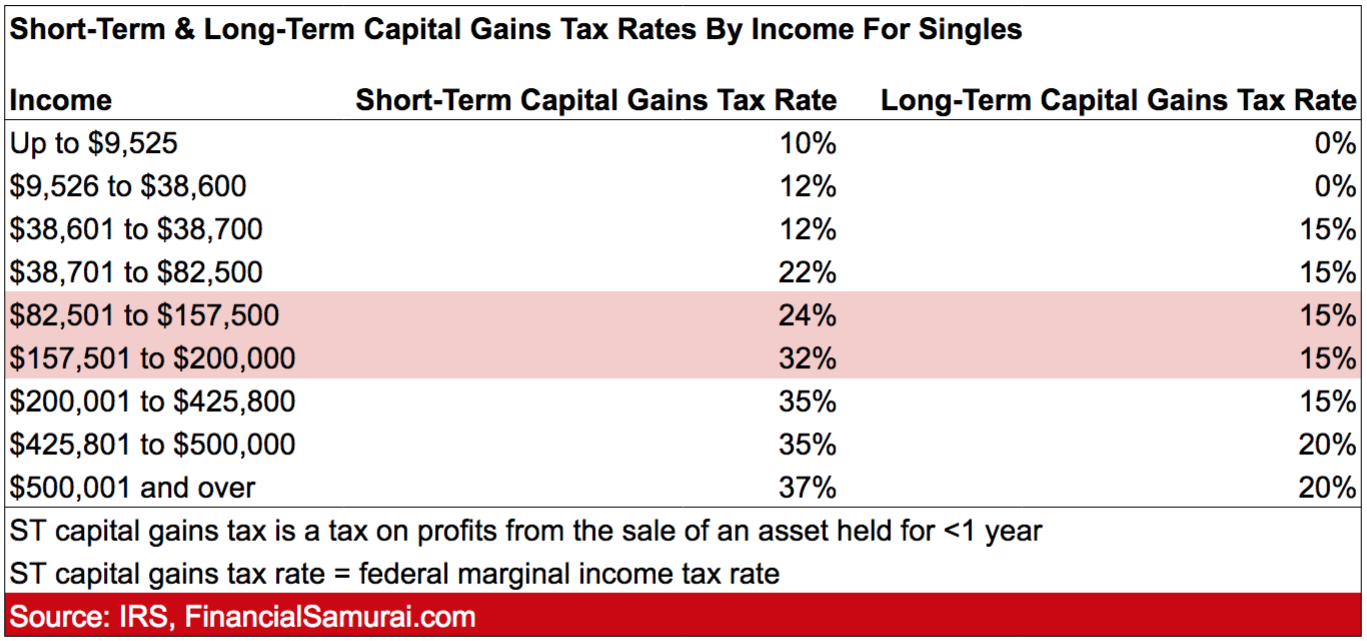Table Of Content

Based on the holding term and the taxpayer's income level, the tax is computed using the difference between the asset's sale price and its acquisition price, and it is subject to different rates. If you are selling a security that you bought about a year ago, be sure to find out the trade date of the purchase. Waiting a few days or weeks to qualify for long-term capital gains treatment might be a wise move as long as the investment's price is holding relatively steady.
Capital Gains Tax On Real Estate: A Guide - Zing! Blog by Quicken Loans
Capital Gains Tax On Real Estate: A Guide.
Posted: Wed, 03 Jan 2024 08:00:00 GMT [source]
Table 2. Does Your Home or Business Show a Gain or a Loss?
You must have lived in the home for at least two of the previous five years to qualify for the exemption (which is allowable once every two years). If your gain exceeds the exemption amount, you will have to pay capital gains tax on the excess. It is possible to reduce your capital gains tax on the sale of a rental property if you plan ahead—for example, by establishing it as your primary residence for at least two years prior to any sale. It’s easy to get caught up in choosing investments and forget about the tax consequences—particularly, the capital gains tax. After all, picking the right stock or mutual fund can be challenging enough without worrying about after-tax returns. Likewise, selling a home can be a daunting task, even before you consider the tax bill.
Who Owes the Net Investment Income Tax?
Short-term capital gains occur upon the sale of an asset that’s been held for less than a year. While tax rates vary, long-term capital gains are typically taxed less than short-term capital gains. From personal items to investment products, almost all of your possessions are capital assets. That includes property like cars or real estate and investments like stocks or bonds.
Avoiding capital gains tax on investment properties

You may be able to do so, however, on investment property or rental property. If you are single, you will pay no capital gains tax on the first $250,000 of profit (excess over cost basis). Learn the details below, including the records you should keep while you own a home to help offset any taxes that could be due.
The profit you make when you sell your stock (and other similar assets, like real estate) is equal to your capital gain on the sale. The IRS taxes capital gains at the federal level and some states also tax capital gains at the state level. The tax rate you pay on your capital gains depends in part on how long you hold the asset before selling. In general, top ordinary income tax rates exceed top capital gains tax rates. Consequently, you’d prefer income to be from a capital gains transaction over an event triggering ordinary income. Capital gain taxes are taxes imposed on the profit of the sale of an asset.
Could you face a tax bill on your home sale?
If your net capital loss exceeds your net capital gains, you can also offset your ordinary income by up to $3,000 ($1,500 for those married filing separately). Any additional losses can be carried forward to future years to offset capital gains or up to $3,000 of ordinary income per year. If your net capital loss is more than this limit, you can carry the loss forward to later years. You may use the Capital Loss Carryover Worksheet found in Publication 550 or in the Instructions for Schedule D (Form 1040)PDF to figure the amount you can carry forward. The tax results are different for nonrecourse debt, meaning the debtor isn't personally liable for the deficiency.
You may find yourself in a lower tax bracket when your capital gains are taxed at retirement. Plus, your retirement account can continue its tax-deferred growth. Your capital losses must first be used to offset capital losses of the same type — so short-term losses are used to offset short-term gains first.
The investor still has $12,000 of capital losses and can deduct the $3,000 maximum every year for the next four years. For example, say an investor realizes a profit of $5,000 from the sale of some stocks but incurs a loss of $20,000 from selling others. The capital loss can be used to cancel out tax liability for the $5,000 gain. The remaining capital loss of $15,000 can then be used to offset income, and thus the tax on those earnings.
During that period, you owned the house all 5 years and lived in it as your main home from August 2, 2008, until August 28, 2010, a period of more than 24 months. You meet the ownership and use tests because you owned and lived in the home for at least 2 years during this test period. If you are a surviving spouse who doesn't meet the 2-year ownership and residence requirements on your own, consider the following rule. If you haven’t remarried at the time of the sale, then you may include any time when your late spouse owned and lived in the home, even if without you, to meet the ownership and residence requirements. Additional information on capital gains and losses is available in Publication 550 and Publication 544. If you sell your main home, refer to Topic no. 701, Topic no. 703 and Publication 523, Selling Your Home.
For more information on how partial home exclusions are calculated, you can find resources on IRS.gov or consult with a qualified and trusted financial advisor. Unlike other investments, home sale profits benefit from capital gains exemptions that you might qualify for under some conditions, says Kyle White, an agent with Re/Max Advantage Plus in Minneapolis–St. If adopted, the capital gains tax changes will go into effect on June 25. As a result, the clock is ticking for those who wish to sell or transfer their vacation homes at the lower capital-gains tax rate. Just over a week after the budget was announced, realtors say they are seeing a flood of clients looking to speed up the selling process. Cottage owners looking to sell are scrambling to close deals before proposed changes to the rules on capital gains take effect and potentially leave them on the hook for much higher tax bills, realtors say.
Material capital gains of any kind are reported on a Schedule D form. So if the person then sold the building for $110,000, there would be total capital gains of $15,000. Then, $5,000 of the sale figure would be treated as a recapture of the deduction from income. The remaining $10,000 of capital gain would be taxed at 0%, 15%, or 20%, depending on the investor's income.
Moving into the rental for at least two years to convert it into a primary residence to avoid capital gains may be a good idea. However, you won’t be able to exclude the portion you depreciated while renting the property. You’ll lose primary residency status on your main home, too, but that can be regained later by moving back in after the sale of the rental property. If you don’t plan to sell the main home for at least two years, you can re-establish primary residency and qualify for the capital gains exclusion later. Due to a special exclusion, capital gains on the sale of a principal residence are taxed differently than other types of real estate. (The years don't have to be consecutive.) For married couples filing jointly, the exclusion is $500,000.

No comments:
Post a Comment